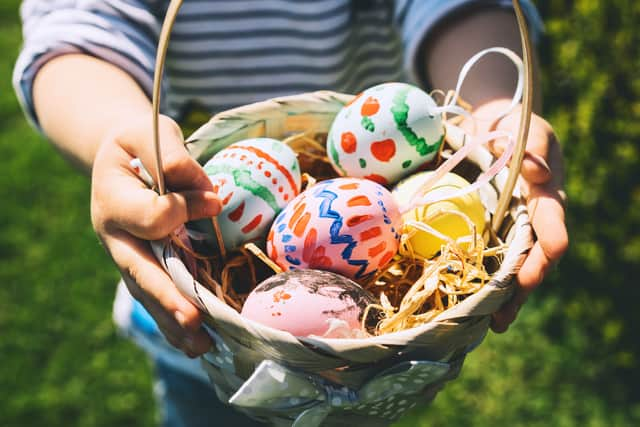When is Easter in 2024, why does the date move and is Easter Monday a bank holiday?
This article contains affiliate links. We may earn a small commission on items purchased through this article, but that does not affect our editorial judgement.
While it's one of the most important dates in the Christian calendar, Easter also offers a respite from the year so far with a long weekend.
For Christians, the holiday marks the resurrection of Jesus Christ on the third day after his crucifixion and the date which Easter falls on changes every year, as do the bank holidays which come with the festival.


Advertisement
Hide AdAdvertisement
Hide AdIn the UK there are many traditions which help mark Easter, whether its gifting loved ones chocolate eggs or painting and decorating real eggs to roll downhill.
Here is everything you need to know about Easter.
When is Easter 2024?
Easter Sunday takes place on March 31, 2024, with Easter Monday taking place on April 1.
This follows Good Friday, which falls on Friday, March 29 this year.
Is Easter Monday a bank holiday?
Easter Monday is a bank holiday in England, Wales and Northern Ireland - but not in Scotland.
For the majority of the UK, Good Friday marks the beginning of a four-day weekend from March 21 until April 1 in 2024. However, in Scotland only Good Friday is considered a national bank holiday.
Despite this, some Scottish local authorities - such as Edinburgh, Dundee and Falkirk - do claim Easter Monday as a public holiday so be sure to check with your council.


Why does Easter change every year?
Unlike other Christian holidays such as Christmas, every year Easter changes dates.
This is because the date on which Easter falls depends on the lunar cycle as Easter Sunday always falls after the first full moon following the Spring equinox.
Advertisement
Hide AdAdvertisement
Hide AdAs this doesn't correspond with an exact date each year, the date of Easter changes. In 2025 the holiday set to fall on Sunday, April 20.
How was the date for Easter decided?
The first major church council in 325 AD, the Council of Nicaea, were the first to decide when Easter should fall every year. Following the crucifixion and resurrection of Jesus after Passover, some Christians elected to mark the occasion by celebrating it at that time in what was known as the ‘month of Nisan’ which correlates to March or April.
However, other Christians of this era chose to commemorate the event on a Sunday because it was believed that this was the day that Jesus’ tomb was discovered according to the religious studies lecturer at the University of Texas, Brent Landau.
In order to resolve the conflict the Council of Nicaea concluded that Easter should fall after the first full moon after the March equinox.
Easter traditions in the UK
There are a number of traditions to celebrate Easter in the UK, with the most notable among them including the gifting of chocolate eggs.
We do this as during medieval times eating eggs was prohibited during Lent - the six weeks leading up to Easter - and eating an egg on Easter Sunday was considered a treat.
There are many traditions in the UK relating to eggs, such as painting eggs and Easter egg hunts.


Egg rolling is another custom, most common in Scotland, the north of England and Northern Ireland, which sees children roll decorated hard-boiled eggs down grassy hills.
Advertisement
Hide AdAdvertisement
Hide AdAnnual competitions are still held at Arthur’s Seat in Edinburgh, Penshaw Hill in Sunderland, the castle moat at Penrith and right across Lancashire.
In addition, hot cross buns are also traditionally eaten on Good Friday to mark the end of Lent and symbolise the crucifixion of Jesus.
Comments
Want to join the conversation? Please or to comment on this article.
